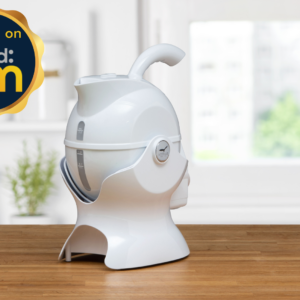Caring and MND
Last week we shared the story of Ger Tracey, the Irish Motor Neurone Disease Association’s 2021 ambassador. We wrote about Ger’s journey before, during and after his MND diagnosis, how he felt then and now and what his plans for the future are.
This week we would like to focus in on the Carer’s side of an MND diagnosis, what to expect and how to look after you so you can look after them.
What is Motor Neurone Disease?
The nerves in the brain and spinal cord control how your muscles work. These nerves are called motor neurones. With motor neurone disease, our own motor neurones gradually stop telling muscles how to move. As a result, our muscles become weak, and this can lead to stiffness and loss of muscle mass.
Sadly, MND is a life-shortening illness that can affect how someone talks, walks, eats and breathes. It affects each person differently, as they may not get all of the symptoms or experience them in a set order. The symptoms do get worse over time, but this can either be at a fast or slow pace.
New to Caring?
If your partner, relative or friend has been diagnosed with MND, there are a number of changes ahead. An MND diagnosis doesn’t just affect the person with the disease, but those close to them as well.
Over time, a person with MND will need increasing levels of care. Supporting someone with MND is not easy, you may need to put aside other things important to you and it can be difficult to maintain a sense of ‘you’. If you find yourself in a caring role, there will be challenges but there are also several supports available.
What does being a Carer really mean?
Being a Carer or Caregiver means you are taking care of an individual that requires regular assistance due to illness, disability, or an inability to do certain tasks on their own. The tasks of a Carer can vary from day to day.
Carers can be:
- Any age, gender, race, or social background
- Retired, unemployed, employed, self-employed or in education
- Attending school if they are a ‘young carer’
- A family member, friend, or a neighbour
- Living with the person with MND
- Not living in the same household but in regular contact
Some of the tasks you take on may not feel like support as you would do them anyway as part of your daily routine. Over time you may need to do more. The person you care for may no longer be able to do certain things around the house or for themselves. MND is a disease that will progress and get worse and as a result, the person’s care needs will increase.
Getting Ready:
Every individual with MND will have varied needs and every Carer will face different situations. You will need to find the right path for you and try to ensure that supports are in place before they are needed. Planning is crucial. Making arrangements for equipment, care supports, or services can take time, so be prepared where you can.
Looking After You:
Taking care of yourself can sometimes seem like an impossible task when facing the challenges of caring for someone with MND.
It is important that you look after your own needs. Both physical and mental health can be affected when taking on a caring role. This may result in you being unable to provide support to the one you care for.
As difficult as it may be, there may come a time when you need to ask for and accept help/support. Caring may be harder and more intense than you ever imagined. MND is not just about the person diagnosed, it affects you too and you deserve support too.
Your Health & Wellbeing:
As a Carer, your health and wellbeing can be affected and signs of this can include:
- Headaches
- Issues with sleeping
- Tiredness
- Muscle tension
- Unexplained aches and pains
- Injuries from moving and handling
There are ways you can manage this. Let your doctor and doctor’s surgery know you are a Carer. For many practices out there, they will have a marker on your file, and this can help them monitor and respond better to your needs. This could help you in:
- Being given a better appointment time
- Open up opportunities for home visits
- Availing in health checkups to monitor your wellbeing
- Advice on treatment or care of the person you support
- Gaining access to information on support services such as respite care to give you a break
You are not Alone:
Everyone’s situation is different, it is important to recognize that there are people you can talk to who understand
For support options talk to your doctor and reach out to the Irish Motor Neurone Disease Association (IMNDA), they have an amazing support system ready to help you and the one you care for.














Leave a Comment